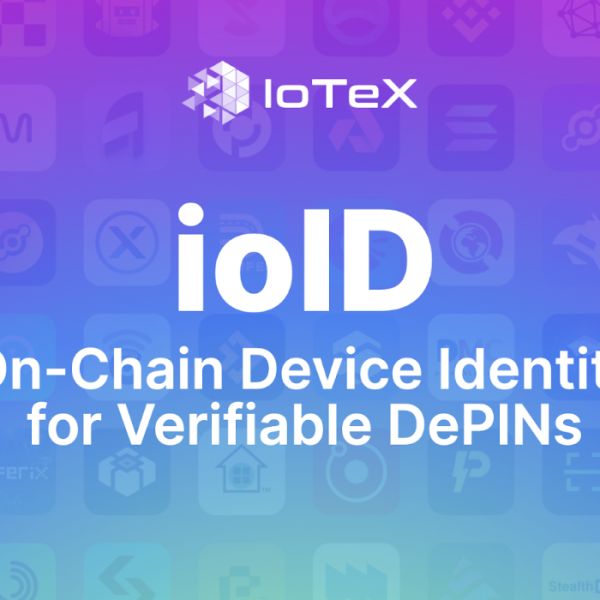Cardano Price: How Legal Regime Differences Shape Corporate Transparency and Investor Perception in Blockchain Firms
- Cardano's 2025 legal risks depend on civil vs. common law jurisdictions' regulatory approaches. - Civil law systems enforce transparency (e.g., Quebec's ARLPE), boosting institutional trust in ADA. - Common law markets face uncertainty, as seen in the delayed Grayscale ADA ETF decision. - Investors prioritize civil law jurisdictions and track regulatory alignment for ADA adoption. - Legal clarity in civil law systems stabilizes ADA's valuation, while common law markets remain volatile.
Blockchain-based firms like Cardano (ADA) operate in a fragmented global regulatory landscape, where legal regimes profoundly shape corporate transparency, investor trust, and price dynamics. In 2025, the divergence between civil law and common law jurisdictions has emerged as a critical factor in assessing legal risk for cross-jurisdictional crypto investments. This article explores how these legal frameworks influence ADA's institutional adoption and offers a strategic framework for investors to navigate regulatory complexity.
Civil Law vs. Common Law: A Tale of Two Systems
Civil law jurisdictions—such as Quebec, Germany, and Japan—enforce structured transparency through codified statutes. For example, Quebec's Act Respecting the Legal Publicity of Enterprises (ARLPE) mandates public registration of ultimate beneficial owners (UBOs) for entities with 25% or more control. This enforceable transparency reduces information asymmetry, fostering institutional trust in blockchain projects like Cardano. In contrast, common law jurisdictions like the U.S. and U.K. rely on self-reported disclosures, which are often opaque and prone to manipulation. The U.S. Corporate Transparency Act (CTA), invalidated in 2023, left a regulatory vacuum, exacerbating uncertainty for ADA investors.
The U.S. Clarity Act of 2025, which reclassified ADA as a “mature blockchain” and commodity, temporarily bridged this gap. This reclassification removed a key institutional adoption barrier, aligning ADA with Bitcoin and Ethereum . The resulting 35% price surge in March 2025 underscores how regulatory clarity in common law systems can catalyze investor sentiment. However, the delayed decision on the Grayscale ADA ETF (pending until October 26, 2025) highlights the inherent volatility of common law markets.
Strategic Framework for Assessing Legal Risk
To evaluate cross-jurisdictional crypto investments, investors should adopt a four-step framework:
- Jurisdictional Analysis: Prioritize civil law jurisdictions with enforceable transparency laws. For example, Germany's BaFin and Japan's FSA have recognized ADA's compliance with AML standards, while Quebec's ARLPE provides a template for verifiable ownership structures.
- Regulatory Alignment: Track how jurisdictions classify digital assets. The U.S. Clarity Act's reclassification of ADA as a commodity reduced regulatory friction, but common law markets remain fragmented.
- ESG and Institutional Partnerships: Civil law jurisdictions often align with ESG initiatives. Cardano's partnerships with institutions like the Pontifical Catholic University of Rio de Janeiro for renewable energy projects enhance institutional appeal in Germany and Japan.
- Monitoring Legal Evolution: Use tools like Polymarket's ADA ETF approval probability (83%) to gauge regulatory momentum. Civil law jurisdictions are increasingly mirroring U.S. regulatory trends, while common law markets must address opacity-driven risks to remain competitive.
Investment Implications
For ADA investors, the legal regime of a jurisdiction directly impacts valuation stability. Civil law systems create a predictable environment for institutional capital, as seen in Germany's BaFin and Japan's FSA embracing ADA's governance model. Conversely, common law markets like the U.S. and U.K. face regulatory headwinds, with the SEC's scrutiny of governance structures adding uncertainty.
A diversified strategy that balances exposure to civil law jurisdictions (e.g., Switzerland's Crypto Valley, UAE's VARA-regulated DMCC) and common law markets (e.g., U.S. states like Montana) can mitigate legal risk. Investors should also monitor global regulatory trends, such as the EU's Markets in Crypto-Assets Regulation (MiCA) and Singapore's progressive stance, which indirectly support ADA's institutional adoption.
Conclusion
Cardano's price trajectory in 2025 is inextricably linked to the legal frameworks of key jurisdictions. Civil law systems, with their emphasis on transparency and enforceable accountability, provide a stable foundation for institutional adoption. Common law jurisdictions, while evolving, remain fragmented and reactive. By adopting a strategic framework that prioritizes regulatory clarity, ESG alignment, and jurisdictional diversification, investors can navigate the complexities of cross-jurisdictional crypto markets and position themselves to capitalize on ADA's long-term growth potential.
As legal regimes continue to evolve, the interplay between transparency and institutional trust will remain pivotal. Investors who align their strategies with jurisdictions that foster these principles will be better equipped to weather regulatory uncertainties and harness the next wave of blockchain innovation.
Disclaimer: The content of this article solely reflects the author's opinion and does not represent the platform in any capacity. This article is not intended to serve as a reference for making investment decisions.
You may also like
The latest SOL proposal aims to reduce the inflation rate, but what are the opponents thinking?
The Solana community has proposed SIMD-0411, which would increase the inflation deceleration rate from 15% to 30%. It is expected to reduce SOL issuance by 22.3 million over the next six years and accelerate the reduction of the inflation rate to 1.5% before 2029.

IoTeX launches the world's first on-chain identity solution ioID designed specifically for smart devices
ioID is revolutionizing identity management for smart devices, allowing DePIN to authenticate devices, protect data, and unlock next-generation application scenarios within a user-owned ecosystem compatible with any blockchain.

Mars Morning News | Last week, global listed companies made a net purchase of $13.4 million in BTC, while Strategy did not buy any Bitcoin last week
Expectations for a Federal Reserve interest rate cut in December have risen, with Bitcoin briefly surpassing $89,000 and the Nasdaq surging 2.69%. There are internal disagreements within the Fed regarding rate cuts, causing a strong reaction in the cryptocurrency market. Summary generated by Mars AI. This summary is generated by the Mars AI model and its accuracy and completeness are still being iteratively updated.

The covert battle in the crypto industry escalates: 40% of job seekers are North Korean agents?
North Korean agents have infiltrated 15%-20% of crypto companies, and 30%-40% of job applications in the crypto industry may come from North Korean operatives. They act as proxies through remote work, using malware and social engineering to steal funds and manipulate infrastructure. North Korean hackers have stolen over $3 billion in cryptocurrency to fund nuclear weapons programs. Summary generated by Mars AI. This summary is generated by the Mars AI model, and its accuracy and completeness are still being iteratively improved.
